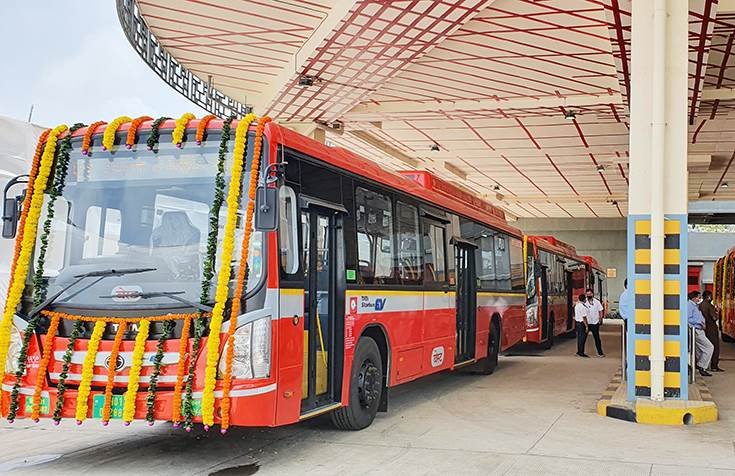Mumbai has become the first Indian city to join the Transformative Urban Mobility Initiative (TUMI) E-Bus Mission, which will develop a tailored implementation work planfor deploying electric buses in Mumbai.
The TUMI E-Bus Mission will comprise a technical assistance plan and a plan to create a long-term adoption roadmapfor Mumbai. A letter of intent to join the TUMI E-Bus Mission was signed by BEST on Monday in the presence of Aaditya Thackeray, Minister for Environment, Tourism and Protocol, Government of Maharashtra.
The city of Mumbai has recognized the urgent need for action to mitigate climate change and considering the key role that the electrification of public transport plays for achieving this goal, will participate and contribute towards the TUMI E-Bus Mission.
“The transition to electric is necessary for all vehicle segments, big or small, in order to fast-track the achievement of climate and air quality goals. E-buses can play a significant role in this transition,” said Thackeray.
Robust action plan for e-bus deployment
The signing of the LoI signifies Mumbai’s reaffirmation of its resolution to work towards decarbonisation of public transport via electrification. The TUMI E-bus mission will help Mumbai define targets for e-bus deployment that will be monitored by an action plan.
The mission aims to establish a broad coalition of public-and-private-sector organisations to achieve a transition to e-buses within 20 ‘deep dive cities’ and to replicate this in a further 100 cities by the end of 2022. By 2025, more than 100,000 electric buses in 500 cities are to be prepared for subsequent tenders and procurements. The project is part of the Action towards Climate-friendly Transport (ACT)-Initiative, which was launched at the UNSG Summit in September 2019.
BEST in Mumbai operates the largest electric bus fleet in India with 386 e-buses. By 2023, the transport undertaking plans to add 1,900 electric buses to its fleet and aims to convert 45% of its current fleet to electric buses.
In a tweet, Tachkeray said, We have 386 EV buses currently and we are looking at 1,900 EV buses & 200 double-decker buses, converting 50% fleet to electric by 2023 & 100% by 2028. WRI Cities India & GiZ will optimize a smooth transition for the consumer and last-mile connectivity for BEST.”
Mumbai’s participation will see technical assistance that may include development of technical specifications for e-buses, protocols for performance assessment, planning the charging infrastructure, route operation and financial models and the development of public policies.
Over the course of the TUMI E-Bus Mission, Mumbai will participate at mentee cities network meetings and engage with knowledge-sharing. Representatives of Mumbai will also engage regularly with global, national, and local coalition partners at conferences and workshops to share experiences and lessons learnt in e-bus deployment.
The German government’s Deutsche Gesellschaft furInternationale Zusammenarbeit (GIZ) and World Resources Institute (lead and co-lead) together with the partners C40 Cities, The International Council on Clean Transportation (ICCT), The Institute for Transportation and Development Policy (ITDP), ICLEI – Local Governments for Sustainability and The International Association of Public Transport (UITP) are jointly implementing the TUMI E-Bus Mission until the end of 2022.




























